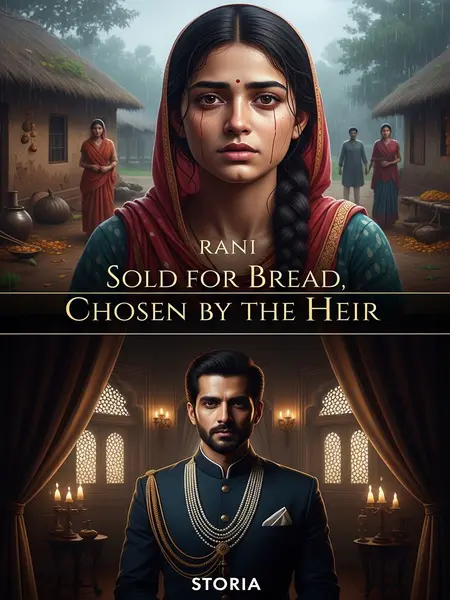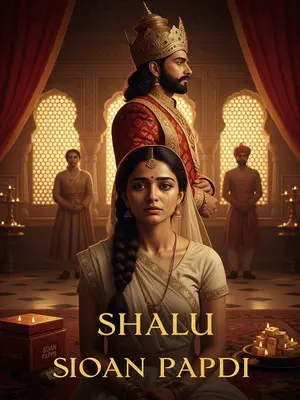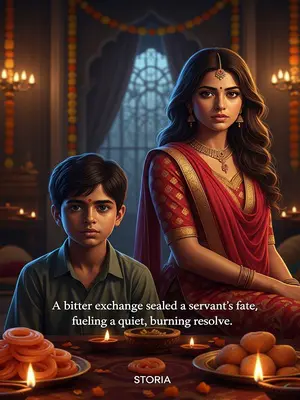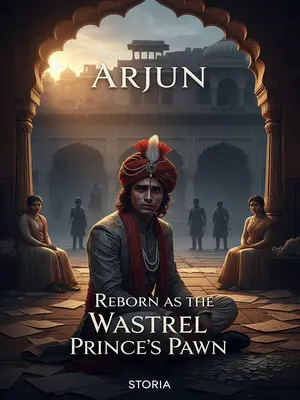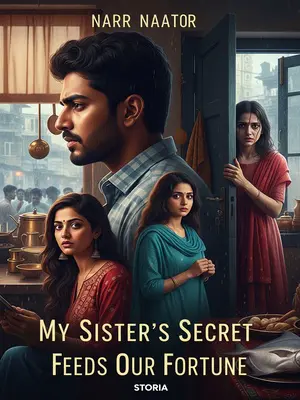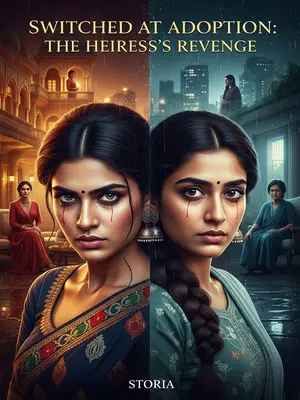Chapter 5: Lucknow’s Secrets
The whole family was locked up together—thin, sallow, almost unrecognisable. Only two young masters remained. The eldest was missing. Madam’s lips trembled. “He was taken,” she whispered. In their eyes, hope flickered despite it all. The constable gave us half an hour. Madam pressed Meera to her, smoothing her hair, dabbing oil from a tiny bottle she’d hidden, whispering, “Beti, baal toh sambhal le.” Meera hesitated, then called out, “Papa,” tears streaking her cheeks. The family wept openly, even the constable wiping his eyes.
Mr. Sharma did not recognise me, but madam did. “Rani? Is it really you?” Her voice was rough, but her eyes softened. Meera clung to my hand, proud. I explained why I’d given Meera my surname and called her Meera. Madam’s response was kind and generous, blessing me as a daughter of the house if they ever saw freedom again. Her hand pressed cool to my forehead, a silent act of care.
Afterwards, I told them I’d tried to bring Meera to the eldest young lady, but she was in confinement. Soon after, the Singhs moved to Delhi. I didn’t mention that the eldest young lady had fainted twice from crying at the news of her family’s fall. In hard times, everyone does what they must to survive.
We left the jail with Meera crying, wanting her brother. I coaxed her for a long time before she would leave. The eldest young master was the stuff of legend: strikingly handsome, board topper, Professor Subramaniam’s favourite, destined for the IAS. Even the servants gossiped about him, and his absence left a hole in the family’s heart.
We rented two east rooms in a shared house on East Street. Mr. Yadav, the street peddler, and his family lived in the west rooms. Mrs. Yadav, skilled in embroidery, became a friend. I asked her to teach Meera. Our leftover fish and snacks fed the Yadav children, and at night, I stitched shoe soles under the tube light, Meera asleep beside me.
The sigri’s smoke curled through the rafters, the smell of burning wood reminding me of home. I always left the window cracked for safety, as Dadi taught me. At fifteen, I was grown, called Didi or Bai in the market. Making a living on the Gomti wasn’t easy—there were always those looking for trouble, especially since I was just a girl with a younger sister. But if you paid hafta, someone would look out for you. I kept a rolling pin by my stove, just in case.
One night, there was a knock on the door. My heart pounded as I wiped my hands on my dupatta, motioned for Meera to stay quiet. “Who is it?” I called. “My surname is Sharma.”
He slipped inside as soon as I opened the door. He stood by the bed, back to me, looking at Meera. He was tall, shawl-draped, his hair neatly combed. I guessed who he was, but dared not ask. I added wood to the sigri, boiled water, and poured him chai—hands shaking, glancing at the latch on the door, heart thudding with fear and hope.
He didn’t remove his shawl, just sat and sipped the chai. His hands were beautiful, his manner cold but alluring. His eyes were dark, deep, and when he looked at me, my heart trembled. His kurta was designer, not the clothes of a destitute. The politics of power was a dangerous game—I dared not ask more.
“Calm and unhurried—you do have courage. No wonder you’ve kept Priya safe.” His words were both compliment and warning. He handed me a bundle: “Tomorrow, find a way out of the city and deliver this to Swami Vivekananda at the old mandir on Jilong Hill. This is grave. If there were any other way, I wouldn’t have come.”
I nodded, feeling the urgency in his voice. The bundle was warm from his hand. “Young master, please take care. The Sharma family is waiting for you in jail.” He nodded, then smiled—dazzling as sunlight. “Aren’t you afraid the Sharma family and I might be bad people?”
“I only know the Sharma family treated me well. That’s enough.” He nodded and slipped away, the shadow of his shawl disappearing down the corridor. I pressed the bundle to my chest, steeling myself for whatever came next.
The old mandir only opened on the first and fifteenth. Tomorrow was neither. Still, I rose before dawn, left Meera with Mrs. Yadav, and set out. The path wound through old trees, the mandir’s red flag fluttering. At the gate, a little boy named Mohan greeted me, “If you want to offer flowers or do puja, come on the first or fifteenth.”
I knelt and offered him toffees, coaxing, “Yeh lo, Mohan, tumhare liye.” He giggled, “Aap bahut chalak ho, didi.” I spun a small lie: “Go tell your swami his daughter from the secular world has come.” The fat priest soon waddled out, cheeks red, and played his own tricks, pinching Mohan’s toffee. I comforted the boy, promising more sweets next time. He grinned, calling after me, “Didi, agli baar mat bhoolna!”
Swamiji waited under the banyan tree, prayer beads turning in his hand. He was too refined for a monk, wisdom and serenity in his gaze. “I have sinned, Swamiji. Please forgive me. I had to lie today.” He studied me, then motioned me forward. I handed him the bundle. “What sin is there? For a girl to have such courage is rare. Did Arjun leave any message?” His voice was gentle, approving. I shook my head. “If you need help, come to me. What’s your name?”
“Rani Choudhary. I sell chai on the Gomti.” He nodded, blessing me. I bowed and left, feeling lighter.
